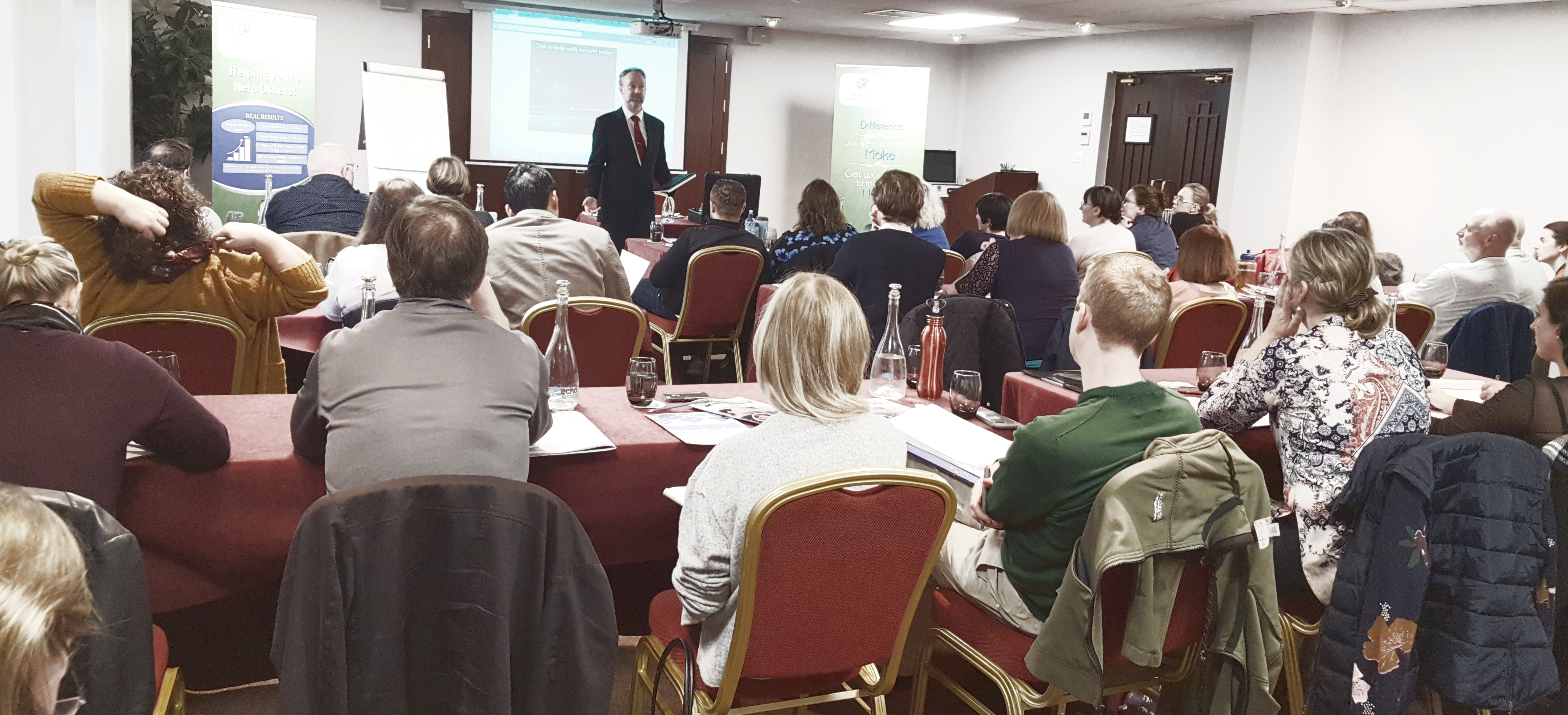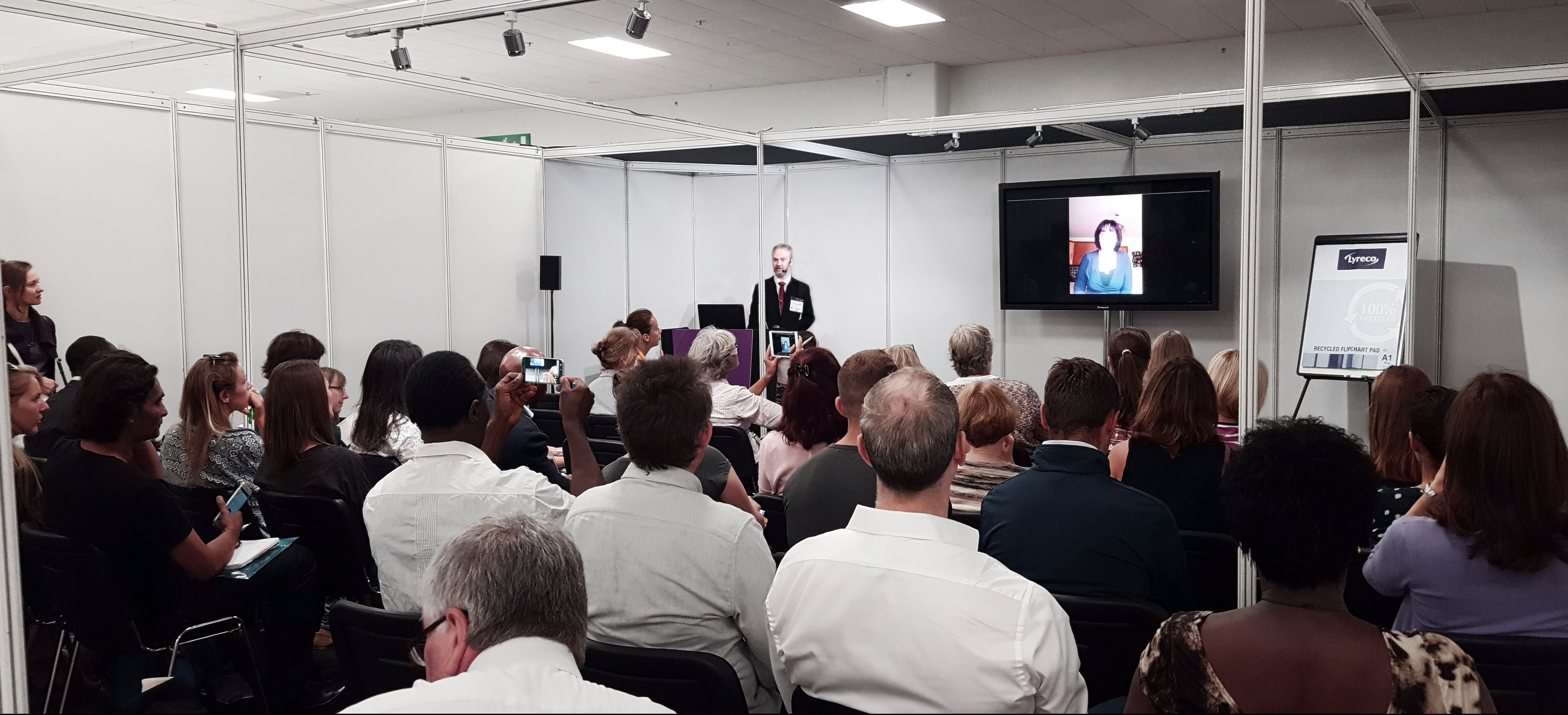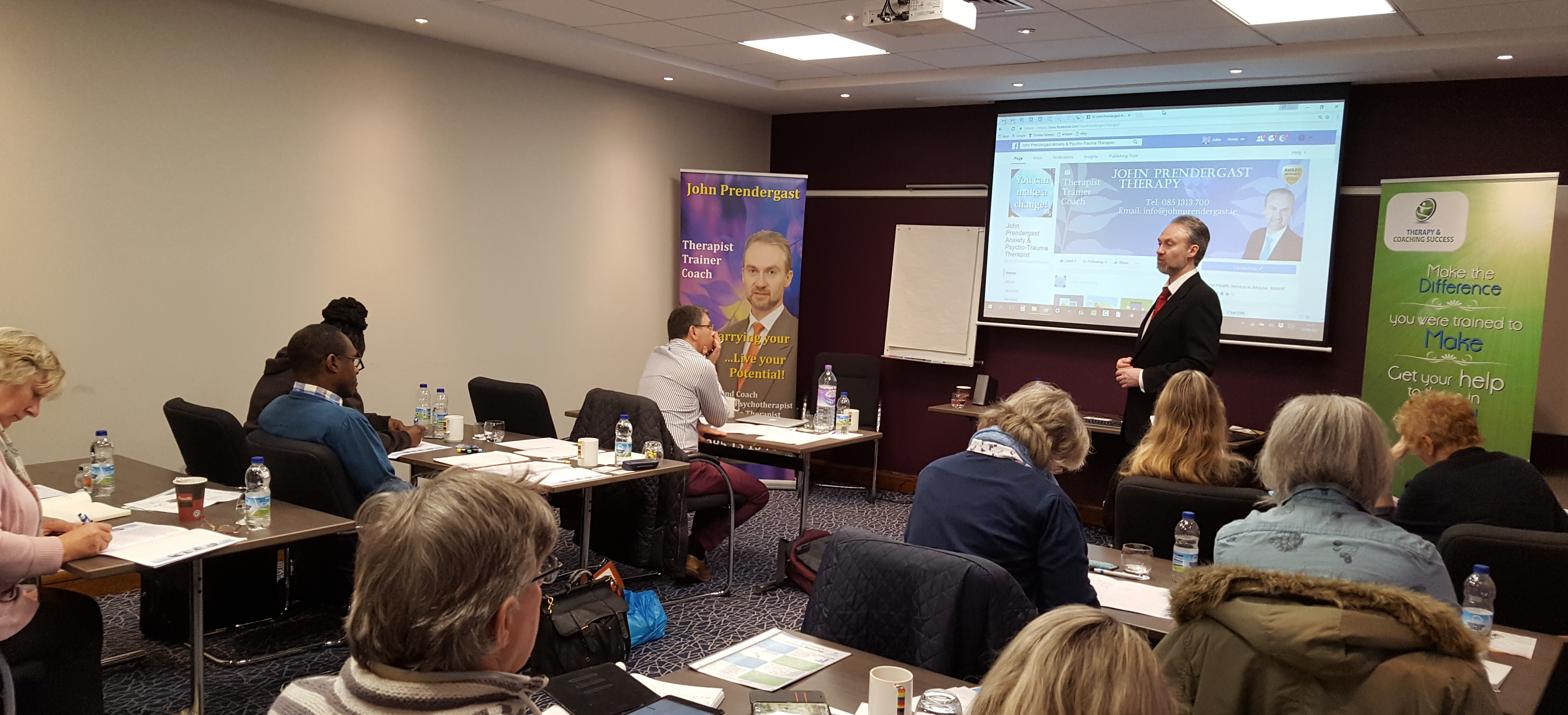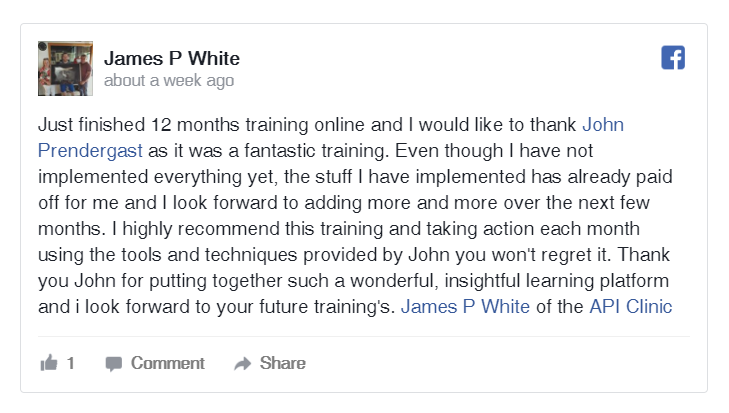‘I’ve told people what I do’,
‘I’ve put who I am out to the world’,
‘I’m really working hard to tell people I can help!’
Why isn’t it working? Don’t people want my help?
Sound familiar? I bet there’s someone you know who’s at that point, aren’t they?
Here’s the 5 most common ways we sabotage our good work by using the wrong language:
#5 Talking about what matters to us not what matters to someone in need.
Ok, yes, I’m guilty of this one too. I did it a lot at the start.
I talked about therapy, I talked about how life could be great, I talked about what I found fascinating in what I do.
I kind of missed the client in that 😊
Yup, sorry to say I wasn’t talking about the life experience that someone was living if they needed my help.
The bottom line is: If they don’t recognise themselves in the message, then they are not likely to read or watch further and they won’t be likely to take action either.
We have to be about where they are in life and what matters to them first. Then we can bring them to the discussion of change, method, etc.
#4 One-upmanship in our message.
Usually this is where we’re so into the type of thing we do, that we sort of assume everyone is looking for our ‘type’ of help.
It’s OK to be into what we do. It’s great to have a belief in the method or philosophy that guides your work. Go you! Just be aware that the client in need probably isn’t as into this as we are.
I’ve seen people try the one-upmanship in so many different areas it’s almost comical.
The 1st time I saw it was when four Hypnotherapists started it. The first advert I saw was for a ‘Hypnotherapist’, then I saw the one for a ‘Hypnopsychotherapist’, soon after an ‘Advanced Hypnotherapist’ opened up, and finally an ‘Advanced Hypnopsychotherapist’ joined in.
None of them did well. It’s not about titles, it’s about connecting with the client in need and giving them some hope and the opportunity for positive change.
I’ve seen Psychotherapists spend more time up front explaining why being an ‘Integrative’ or ‘Contemplative’ or ‘Person Centred’ etc. type pf psychotherapist is the best.
The client doesn’t care about that until after they become aware and interested in the value of psychotherapy. Only then should we be giving time to which form we believe in or think is the best.
The list goes on: ‘Four Element Acupuncture’ seemed to be followed by ‘Five Element Acupuncture’, then ‘Six Element’ and ‘Seven Element…’
I’m sure they each have a guiding structure and values, but isn’t it more important to give a focus to what we help before we go into how cool the method is?
#3 Putting the method before the need
That brings us neatly to the next issue. Mostly, when we start, we think our skillset is the offering itself. I certainly did. That’s probably one of the biggest reasons I struggled so much at the start.
We offer Counseling, Psychotherapy, Reiki, Coaching, EMDR, NLP, TFT, etc. up front.
I’ve seen so many ads, posters, cards, flyers, brochures, and so on that read like this:
Name, Title,
Offering (Therapy name) in confidential environment. Helping with a wide variety of needs.
Number and e-mail
That presupposes someone suffering or stuck, knows what our therapy name means in plain language. In my testing and tracking of this over the past several years, only 5% of clients chose therapy by type. 95% chose by the issues it helps.
Here’s a quick example of what works better:
Name, Title
Helping reduce: Symptom, Symptom, Symptom, Symptom, Symptom, Symptom.
Number and email
So:
John Prendergast, Psychotherapist
Helping reduce anger, fear, panic, flashbacks, nightmares.
085 1313700 info@therapyandcoachingsuccess.com
Most people looking for help don’t know what type of therapy is best. Most don’t even know what they are suffering from. Point out their life experience and people will choose you for who you are and how you have connected to their suffering. That’s more powerful by a factor of 20 to 1, than the type of therapy by name!
For the record, do talk about your method, just not as the most important thing you say first. That make sense?
#2 Mistaking our qualifications for what we do.
What do you do?
‘I’m a psychologist’, or ‘I’m an energy healer’, or ‘I’m an NLP practitioner’.
OK, how useful is that info?
That’s the common answer and it also informs how most of us put our message out as well, but is it helpful?
If the answer was something like the below, would it be more useful?
‘I help people get over flashbacks, nightmares and trauma.’
‘I help people stop worrying and start enjoying life’.
‘I help people get over phobias and fears’.
Would those answers let people know more easily if they needed your help?
The formula should be: Life experience with the problem, before qualifications and method info. Your qualifications and method are important points, and people will be interested in them if they first see the reality of what you help.
#1 Naming rather than demonstrating.
This is the big one. It’s dangerous because it looks as though we’re doing the right thing, but it’s still a barrier to people choosing help.
It’s where we label what we do but in a way that doesn’t quite connect with the client.
Words like: Anxiety, Stress, PTSD, Metabolic Syndrome, and so on.
Most people who suffer, don’t know the label for what they suffering.
90%+ of my anxiety clients don’t identify with the word anxiety. However they do identify with: worry, second guessing, sweating before a presentation, rerunning conversations, always seeing the worst case scenario, getting angry easily, and so on.
Demonstrate to them their own life experience rather than just the label, and you can have a much easier time connecting with clients and make it easier for them to choose change.
The nice thing is that what helps us get busy and earn a living is also what makes the world a better place.
Hope you found this useful. Go and implement it. Look at what you are putting into the world and make sure it is there to help the person suffering, that will make your life better too.
Thanks for continuing to share your help. I needed that for decades. Every one of us helping others means more people like me, stuck and suffering, are more likely to get help.
Have a great week,
John
If you haven’t already, signup below to stay in touch
He is also the Founder of Therapy and Coaching Success that specialises in helping Therapists, Coaches and other Wellness Practitioners, connect with those in need, build their diaries and earn the income they need.
Why you need Therapy and Coaching Success Training
If you are:
 Starting a business in the Wellness industry and have trouble finding clients
Starting a business in the Wellness industry and have trouble finding clients
 A Therapist who wants to help more people, but are struggling to fill your diary
A Therapist who wants to help more people, but are struggling to fill your diary
 A Trainer or Coach who wants to increase their income, but find it hard to fill classes or seminars
A Trainer or Coach who wants to increase their income, but find it hard to fill classes or seminars
 A Wellness Practitioner who has done all the usual industry training on marketing and social media, and find that nothing has really worked
A Wellness Practitioner who has done all the usual industry training on marketing and social media, and find that nothing has really worked
 A Therapist or Coach with the desire and capacity to help more people, but your room is empty too often
A Therapist or Coach with the desire and capacity to help more people, but your room is empty too often
Make the Improvement, Impact and Income, you were trained to make!

Monthly Training Program
Great monthly training at a Tiny price!
In this program you get €1,200 worth of training for just €19.50 a month in the first year alone.
Sign up below and get your first month’s training: a 3-part course on how to craft your bio. Mine brings me €10,000+ a year!
Some Subjects Tackled in the Training:
Here’s a list of the subjects tackled in the first 6 months:
- Getting your Bio right and working for you
- Business cards: how to get results
- Getting and using Testimonials
- Newspaper advertising made easy
- Getting your price right
- Optimising flyers and leaflets
For more information click HERE










